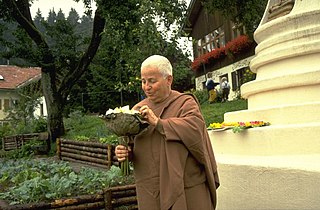A Quote by Francois de La Rochefoucauld
Nothing should lessen our satisfaction with ourselves as much as when we notice that we disapprove of something at one time that we approve of at another time.
Related Quotes
But the point is, now, at this moment, or any moment, we're only cross-sections of our real selves. What we really are is the whole stretch of ourselves, all our time, and when we come to the end of this life, all those selves, all our time, will be us - the real you, the real me. And then perhaps we'll find ourselves in another time, which is only another kind of dream.
There is no better time than now, this very Christmas season, for all of us to rededicate ourselves to the principles taught by Jesus Christ. It is the time to love the Lord, our God, with all our heart – and our neighbors as ourselves. It is well to remember that he who gives money gives much; he who gives time gives more; but he who gives of himself gives all.
Successful leaders develop effective strategies for maintaining their boundaries. ... Most time bandits don't know any better. And being a time bandit is a matter of context. One person's time bandit is another person's pleasant diversion. ... Instead of gritting our teeth to be polite and resenting the time bandit for holding us up, the best choice is to be honest. We cannot expect another person to honor our needs unless we affirm them ourselves.
I never approve, or disapprove, of anything now. It is an absurd attitude to take towards life. We are not sent into the world to air our moral prejudices. I never take any notice of what common people say, and I never interfere with what charming people do. If a personality fascinates me, whatever mode of expression that personality selects is absolutely delightful to me.
We could become quite satisfied with ourselves because we are sitting in meditation and are endeavoring to practice the spiritual path. Such satisfaction with ourselves is not the same as contentment. Contentment is necessary, self-satisfaction is detrimental. To be content has to include knowing we are in the right place at the right time to facilitate our own growth. But to be self-satisfied means that we no longer realize the need for growth. All these aspects are important parts of our commitment and makes us into one whole being with a one-pointed direction.
We live less than the time it takes to blink an eye, if we measure our lives against eternity. So it may be asked what value is there to a human life. There is so much pain in the world. What does it mean to have to suffer so much, if our lives are nothing more than the blink of an eye?...I learned a long time ago, Reuven, that a blink of an eye in itself is nothing; but the eye that blinks, that is something.
All mental hygiene is based on the core practice of doing nothing. Most of us are good at wasting time, staring at the wall while telling ourselves we should be working. We call this doing nothing, but our brains are furiously active. We think constantly, and our thinking is often rife with distress.


































